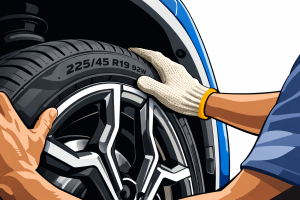For all of us driving is usually a routine or a task of necessity – it gets us from point A to point B. However, its benefits can extend even further than that. Many people use driving as a means of their own therapy to unwind and collect thoughts. This article will explore how driving can positively impact our mental health by being a stress relief, enjoyment, relaxation and providing a sense of freedom, independence and control.
Escaping the Daily Stress
Plenty of people, if not most of us, live a pretty fast-paced lives. Stressful day-to-day routines, anxiety and burnouts are just some of the things that we deal with on a daily basis. Mental health brakes can serve as a form of deliberate and temporary pause from work and all other forms of responsibilities that cause us stress.
Driving gives people a sense of freedom and independence due to the certain level of autonomy that it offers – you feel like you can go wherever and whenever you want, leaving all your anxiety and stress behind. It can serve as a great space to clear your mind and take a break from your daily thoughts.
Sitting behind the wheel also provides a sense of control over our environment. Plenty of people dealing with anxiety know the feeling of having no control over one or more areas of their life. Navigating traffic and getting safely from point A to point B gives people a sense of control that may be absent in other areas of their lives.
Your car can also serve as your personal space that allows you to have the rare and precious alone time to reflect and recharge. Whether it’s a daily commute to work or a casual drive, the time spent alone in your car is an opportunity to think, relax and unwind.
Psychological and Social Benefits
Any change of environment, whether it’s exploring new places or driving around the city you live in, can reduce stress and help you deal with your daily struggles. It can be a spontaneous road trip or a scenic drive, scientists argue that gentle driving can induce a relaxation response in our body which reduces cortisol (stress hormone). Driving through the forest, by the coast or on a road with a mountain view can all have a relaxing effect on your mood. It allows you to temporarily leave your stressors behind while giving yourself a mental refresh.
Driving requires concentration and this way it can serve as a healthy distraction from our worries and negative thoughts. It can help you shift your attention from stressful thoughts to the road, surroundings and driving itself. Besides that, the nature of driving consists of repetitive and rhythmic movements (accelerating, steering and braking) which can all reduce anxiety levels. It serves as an almost meditative activity that promotes relaxation, similar to physical activities such as walking or knitting.
While tackling your stressful and anxious thoughts alone might work for some, you should also not forget how spending quality time with other people can positively impact your mood. Driving with your friends or family can help you reduce stress by providing time for meaningful conversation and emotional connection. If you’re struggling with the feeling of isolation, road trips and driving can be a great source of bonding experience that strengthen the relationship you have with the people around you. Engaging in such activities is essential for your overall well-being.
Successfully navigating the roads and handling various situations on the road can boost your confidence too. It reinforces your driving skills and has a positive impact on your self-assurance. Overcoming driving challenges such as heavy traffic and parking enhances your sense of competence and self-efficacy which further improves your independence and reduces the feelings of helplessness.
Conclusion
Whether it’s just a daily routine or a spontaneous road trip, learning how to enjoy driving (and other activities we take for granted) is one of the steps on the way to improve your well-being. According to experts, besides being an everyday task, driving helps our brain to think productively. Alongside productivity, it improves various other skills such as the ability to focus, without distractions.
Alleviating mental distress in today’s fast-paced environment is crucial for staying sharp and prepared for all the upcoming stressful events. Silent or with music, alone or with company, try to change your perspective on driving and enjoy it as an experience of recharging and slowing down your thoughts.




